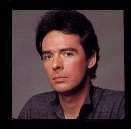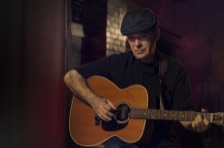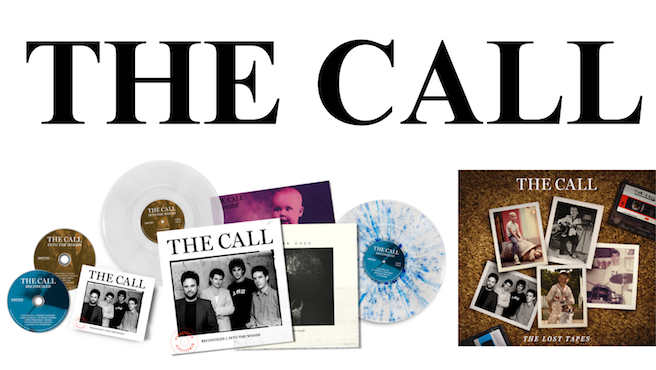
An Interview/Profile with Scott Musick (1987)

Scott Musick's drumming is the relentless pulse of The Call's music. Since their early beginnings in California clubs, Scott's solid fills and cohesive beat have been an integral part of The Call's unique style.
MUSICAL ROOTS
Basically self-taught, Scott's musical education began at an early age. "I've been playing since I was a kid. I grew up in a musical environment. My dad was a musician so we always had music in our home. He played drums, trumpet, guitar and sang in combos. My older brother also sang in local bands around Tulsa. I played in the jazz band at school, and it was about that same time I began drumming for a rock band."
"I listened to a lot of jazz as well as rock and roll. The jazz greats, Buddy Rich, Max Roach, Art Blakey - they all had a tough sound. I affected early on by Stones, Beatles, Yardbirds, and the Band. Charlie Watts of the Stones is still one of my favorite drummers - - he's straight ahead rock and roll. He and Levon Helm of the Band both had well-honed styles for rock and roll drummers. Being from Oklahoma I suppose I was also influenced by country and western music."
BEGINNINGS
Scott got his first taste of real musical duty in California. "After school I went out to Los Angeles. I played in a couple of bands and from there went to Las Vegas with a club band. That lasted about six months and I went back to Tulsa. I saw this guy I had known I California who suggested I go back and look up this singer named Michael Been who had this really great voice. I did, and Michael and I have been playing music together since then. We played in a lot of bands but after awhile we settled in the Santa Cruz area to concentrate on developing our own style and writing songs."
Mere coincidence that these two Oklahoma musicians should have such musical compatibility? "A few years after we had been playing together, Michael was sitting on the front porch of my granddad's house talking with him about Oklahoma when Michael mentioned that his grandfather had worked in a pharmacy in Tulsa. As it turned out, our grandfathers had been best friends in college and were apprentices at the same pharmacy in Tulsa. It was an incredible discovery."
THE MUSIC
"One of the things that makes our music unique is, of course, Michael's lyrics. Overall, the songs have strong melodies and a good grove. Individually we all contribute by bringing in our own ideas. Jim has been the most modern influence on our music. He plays the synthesizer tastefully and doesn't allow the instrument to dominate a song. Tom's style is very diverse and original - his guitar moods can range from atmospheric and flowing rhythms to basic blues. Michael has an amazingly solid and complex bass line. As for myself, I've always tried to be very open-minded about music, so even though I'm mainly grounded in rock and roll, I fall back on my entire background and try to take an intuitive approach to our music."
TOURING
Part of the inner dynamic that makes The Call stand out from the crowd in rock music today is the band's intense live performances. "We're a performance band, a live band. We have a lot of power on stage. I guess it's because we really love to play music, and we put everything we've got into it. With a live show, you also get an immediate audience reaction, and we have some great audiences."
Despite their years of collective onstage experience, it's the offstage camaraderie that makes The Call a band. "It's an interesting situation. When you're in a band you spend an incredible amount of time together. You're either sound checking, backstage waiting to go, performing or traveling, or in the studio. You have to enjoy the company or you're in trouble."
THE STUDIO
The Call's background is substantial - -five studio albums and the sixth in the making. "With the upcoming album we basically represented in the studio what we do live. We wanted to record in a method that most closely resembled a live performance as possible, and we like the way it's turning out. We set up in the studio like we would on stage with the monitors I the room. We went into the studio purposely under-prepared to leave room for as much spontaneity as needed. On this last tour we did a few of the new songs at sound checks, but stopped half way through because they were sounding too good. What I mean by that is you can get into liking a song a certain way, and not see the possibilities of what you can do in the studio."
The Call has done most of the production work on their albums. "My drum sound has been different on each album. There are a lot of techniques you can use to beef up or color your sound and I've used them. But I feel musicians should take responsibility for creating their own sound rather than relying totally on an engineer."
ALBUMS
The Call has been really quite varied and innovative. "We are all pretty eclectic in our tastes - - we tend to like all kinds of music. With each album we've experimented, so our music has been evolving. We've learned something new on every record and have grown musically."
THE AUDIENCE
Can you describe the audience you want to reach? "As diverse as possible. It's true, though, you can never please everybody, and that's not our ambition. I think everyone wants their music to be accessible and our albums are a result of thinking about getting our music to a wider audience, but still doing what we like to do. Our audience is largely people whose first Call album was "Reconciled" and who probably never heard our earlier stuff. But now they're going back and finding those albums to see what they've missed."
Song you wish you had written:
“Unfaithful Servant” by the Band. There’s a killer song.
Have you read and good books lately:
It would have to Gideons Bible. You can’t get away from it when you’re traveling.
What music have you been listening to:
Dylan’s “Oh Mercy”, which is his best record in years. One of the best songs on the album is “Most of the Time”, but they’re all so great.
On this tour (1989) you are playing mostly large clubs and theaters, a very intimate atmosphere compared to arenas or stadiums. How would you feel about playing stadium shows?
We did play a stadium show on this tour and it sounded great. But the Call will never be a stadium band in the conventional way where you have a wildly exciting visual show. Michael’s never going to tell little stories and funny anecdotes between songs. It’s always gonna be the kind of situation where people are going to come to listen to the music. We’re just that kind of band. And if we can’t get over to the mass audience with our music, then we won’t.


